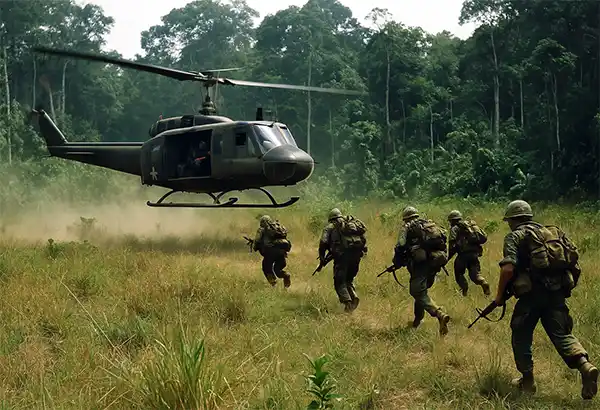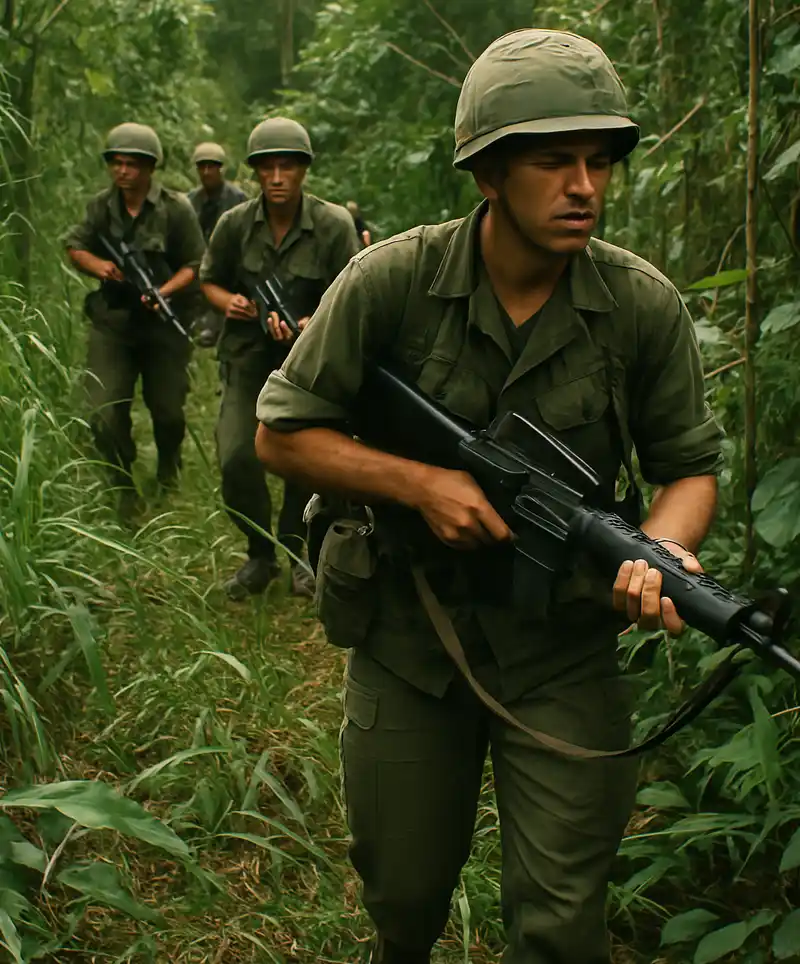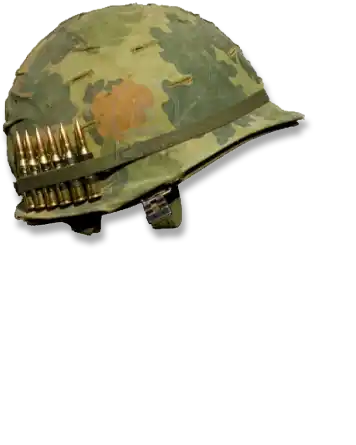Honoring the soldiers who fought the war, politicians refused to call a war
March 29 marks National Vietnam War Veterans Day, a day to finally say what should’ve been said decades ago: Thank you to the men and women who served in one of American history's most controversial, grueling, and misunderstood conflicts.
While politicians back home tiptoed around labels—calling it a "conflict," a "police action," or a "military engagement"—those who were there didn’t have the luxury of euphemisms. They weren’t policing a neighborhood; they were dodging bullets, booby traps, and bureaucracy. They weren’t "engaged" in a civil dispute; they were fully committed, often against unclear objectives and ever-changing strategies.
So, What Was the Vietnam War?
In technical terms, the Vietnam War was a Cold War-era conflict that pitted communist North Vietnam and its allies against South Vietnam and, primarily, the United States. The war raged from November 1, 1955, until the fall of Saigon on April 30, 1975—though if you ask anyone who served, they'll tell you it felt even longer.
U.S. involvement escalated in the 1960s, reaching a peak with over 500,000 American troops deployed by 1969. It was a war fought in jungles, rice paddies, and mountains, under extreme heat, monsoon rain, and constant uncertainty. Guerrilla tactics, landmines, and an enemy that blended into the civilian population made every day unpredictable—and deadly.
But at home, instead of a hero's welcome, many returning veterans were met with protests, finger-pointing, and silence. The real disgrace of the Vietnam War wasn’t just in its politics—it was in the way its veterans were treated when they came home.
 The "War That Wasn't a War"—Sure, Tell That to the Draft Board
The "War That Wasn't a War"—Sure, Tell That to the Draft Board
One of the more infuriating aspects of the Vietnam era is the government’s refusal to call it a war. Over 58,000 American lives were lost, yet for decades, Washington debated whether it met the criteria for the W-word. It’s one thing to play political games in the Capitol; it’s another to do so while Americans were being shipped off by the thousands to fight and die in Southeast Asia.
And while we're on the subject: selective service was alive and well. Young men—many barely out of high school—were drafted into a "police action" that came with bullets, napalm, and PTSD. Let’s just say the cops don’t usually drop Agent Orange.
Honoring the Ones Who Served
National Vietnam War Veterans Day wasn’t officially recognized until 2017, when the Vietnam War Veterans Recognition Act was signed into law. That’s right—more than four decades after the last American troops left Vietnam, the country finally got around to setting aside a specific day to say, “Thanks for your service.” Better late than never? Maybe. But let’s be honest—it should’ve happened in the 1970s.
The choice of March 29 is significant. On that day in 1973, the last U.S. combat troops departed Vietnam, and the final acknowledged American prisoners of war were released from captivity. For those who served, it marked the end of active American involvement in a war that had stretched on for nearly two decades. For many, though, the war never really ended—it just came home with them.
Unlike veterans of other wars, those who served in Vietnam often returned to an ungrateful nation. There were no ticker-tape parades, no nationwide celebrations, and certainly no heartfelt welcome-home ceremonies. Instead, they were met with suspicion, criticism, or worse—indifference. Many hid their service out of shame or fear of backlash, and countless veterans still carry physical and emotional scars that were never properly acknowledged or treated.
Today, that’s slowly changing. Across the country, communities now hold ceremonies, parades, wreath-layings, and flag-raising events to honor Vietnam veterans. Some towns host welcome home ceremonies—not flashy, but sincere—where veterans are given the recognition they should’ve received 50 years ago. Veterans’ organizations, local VFWs, and national memorials often hold commemorative services, many of which feature honor guards, military bands, and reflections from those who served.
Even small gestures matter. You’ll see veterans wearing their hats and patches with pride—finally, without fear of judgment. Families attend these events to support their loved ones and teach the next generation the value of service and sacrifice.
National Vietnam War Veterans Day is more than a line on the calendar. It's a reminder that honoring veterans isn't just about patriotism—it's about decency, accountability, and remembering that real people carried the weight of a conflict too long ignored.
If you’ve never thanked a Vietnam veteran, today is a good day to start.
What You Can Do
It’s never too late to show appreciation, and on National Vietnam War Veterans Day, actions speak louder than delayed resolutions. Whether you served, know someone who did, or simply want to do right by those who answered the call, there are meaningful ways to honor Vietnam veterans beyond hashtags and bumper stickers. Here’s how you can make a difference:
- Thank a Vietnam veteran. It’s simple, heartfelt, and overdue.
- Learn the history—the real history, not the sugarcoated summaries in high school textbooks.
- Visit a local memorial or VA facility. Many Vietnam vets still struggle with wounds both visible and invisible.
- Listen to their stories—not all of them will tell you what they saw, but when they do, listen.
They Deserved Better
The Vietnam War was messy, murky, and politically chaotic—but the veterans were none of those things. They were brave, loyal, and determined. They followed orders, even when the orders were senseless. And they returned home to a country that too often looked the other way.
So today, we don’t just honor their service—we acknowledge the raw deal they were handed, and we promise never to let it happen again.
But let’s be real—if we leave it to the politicians, we might end up calling the next war a “strongly worded disagreement.”
Please Share our Content






 The "War That Wasn't a War"—Sure, Tell That to the Draft Board
The "War That Wasn't a War"—Sure, Tell That to the Draft Board








 "Sláinte!" is a traditional Irish expression used as a toast, equivalent to "Cheers!" in English.
"Sláinte!" is a traditional Irish expression used as a toast, equivalent to "Cheers!" in English.